
[ad_1]
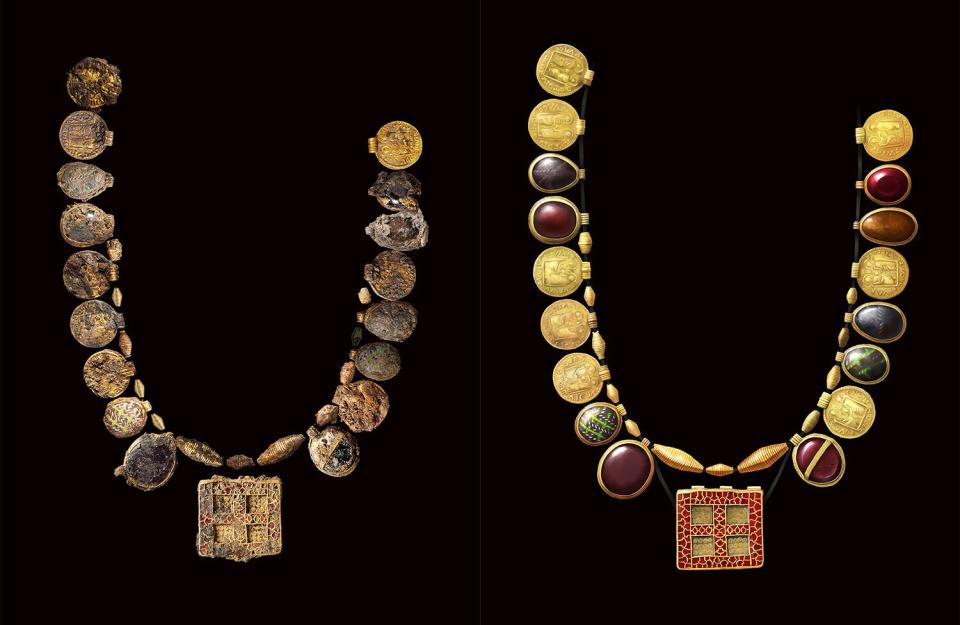
MOLA
Archaeologists in England have uncovered a trove of treasure, together with a shocking gold necklace they are saying is probably going 1,300 years previous and belonged to a religious and really rich Medieval lady.
On Tuesday, the Museum of London Archaeology crew (MOLA) revealed the wonderful discovery — now generally known as the “Harpole Treasure” — that occurred in April throughout a dig in Northamptonshire.
Dig chief Levente Bence Balázs mentioned the crew was looking “a suspected garbage pit” when he noticed tooth protruding of the bottom. “Then two gold objects appeared out of the earth and glinted at me,” he recalled, in accordance with The Guardian.
What Balázs encountered wasn’t trash in any respect — however moderately “essentially the most vital early medieval feminine burial ever found in Britain.”
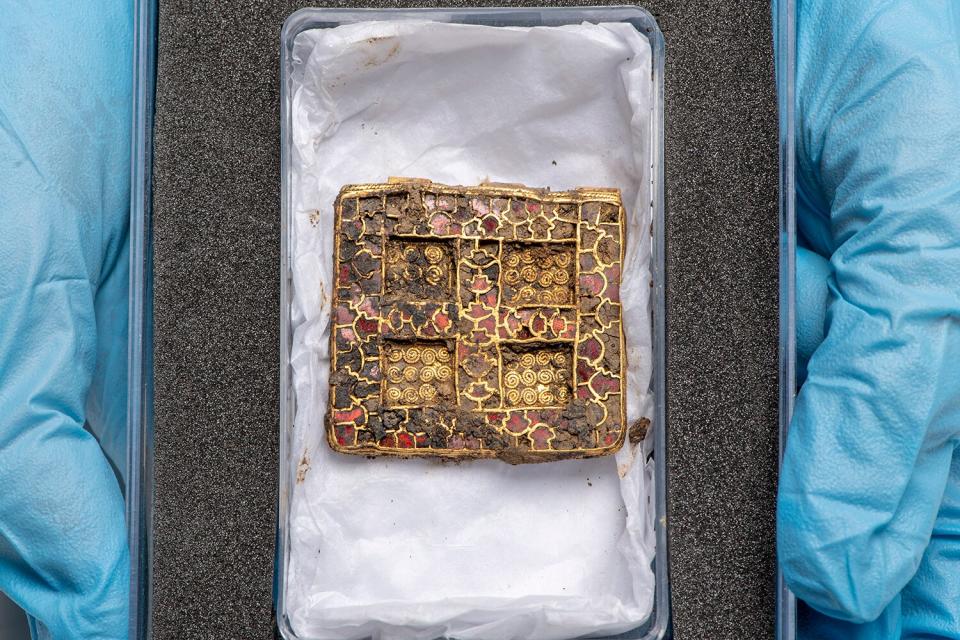
Andy Chopping
“These artifacts have not seen the sunshine of day for 1,300 years, and to be the primary particular person to see them is indescribable,” he mentioned of the objects believed to be from the years 630-670 AD. “However even then, we did not know fairly how particular this discover was going to be.”
The gold the crew initially noticed on the web site was from a necklace, which MOLA mentioned is “essentially the most ornate of its variety ever discovered.” The piece options semi-precious stones and adorned glass pendants set in gold in addition to gold Roman cash and gold “bead spacers.”
A big rectangular pendant product of purple garnets and gold with a cross motif is on the middle of the necklace, in accordance with MOLA.
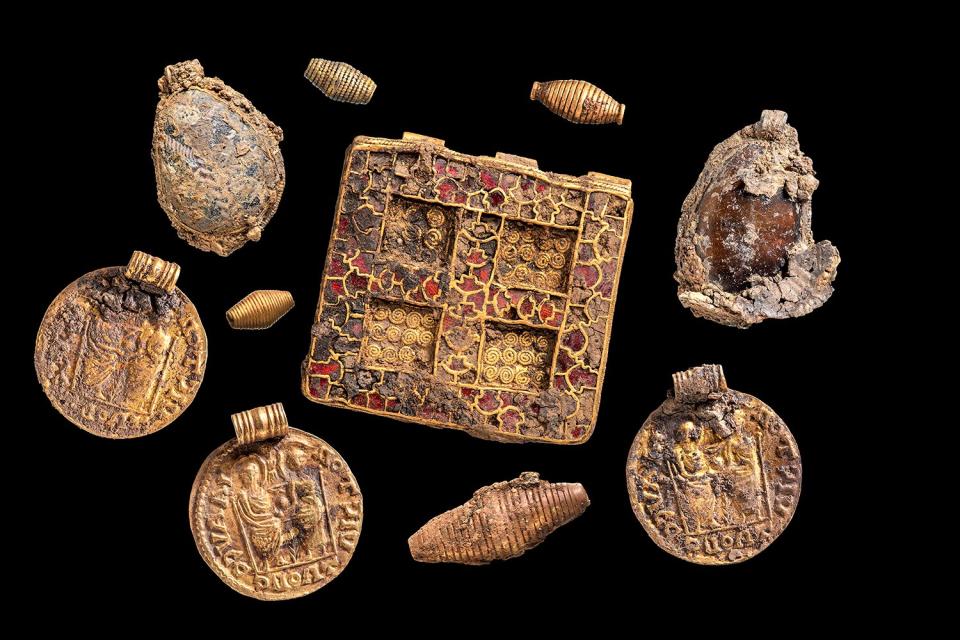
Andy Chopping
“It’s an archaeologist’s dream to seek out one thing like this,” Balázs mentioned, per the Guardian report.
“A lot of necklaces with comparable pendants have been present in feminine burials relationship to round this time,” MOLA mentioned on its web site. “Nevertheless, solely the Harpole Treasure necklace has this unimaginable number of pendants.”
By no means miss a narrative — join PEOPLE’s free each day e-newsletter to remain up-to-date on the very best of what PEOPLE has to supply, from juicy movie star information to driving human curiosity tales.
An identical necklace, generally known as the Desborough necklace, was additionally present in Northamptonshire in 1876, in accordance with the publish. It could now be discovered on the British Museum.
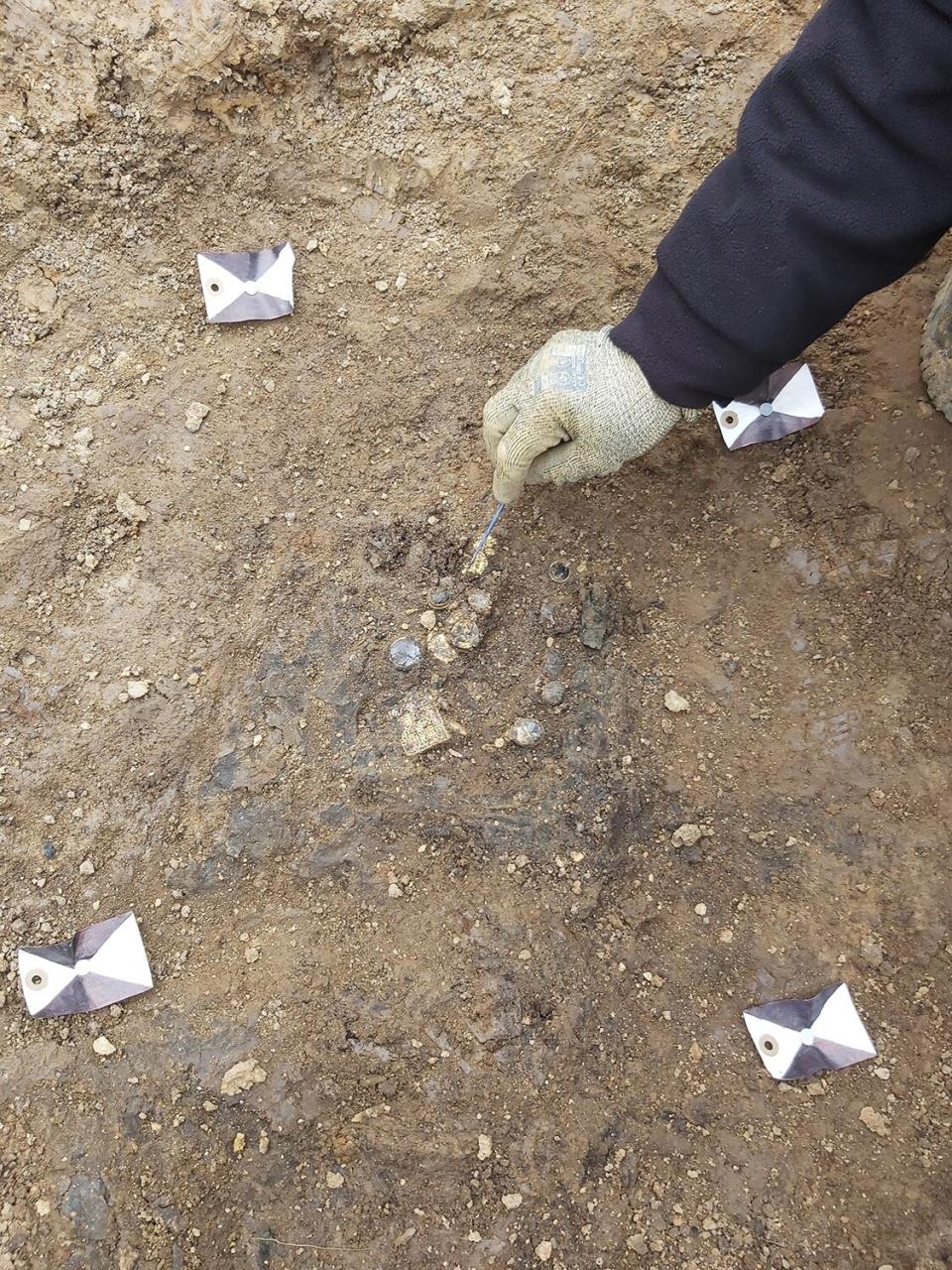
MOLA
Two adorned pots made within the Frankish fashion, a copper dish and a big cross had been additionally discovered on the web site, in accordance with CNN.
“On the finish of two arms of this cross we even discovered some uncommon depictions of human faces forged in silver,” MOLA mentioned in its publish.
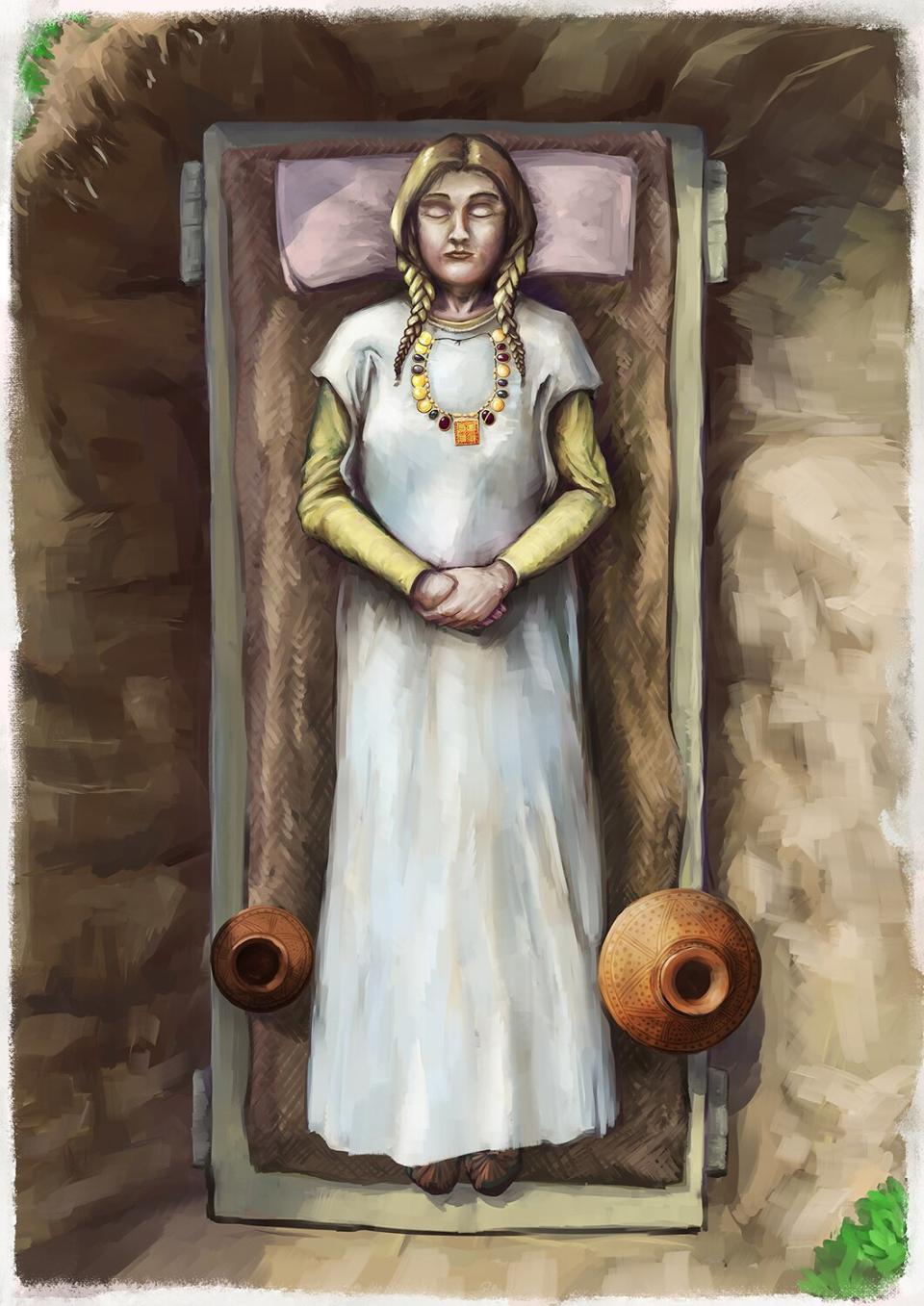
Hugh Gatt
The dimensions of the cross suggests the particular person buried on the web site might need been an early Christian chief.
The tooth fragments are all that stay of her, however archeologists imagine the totally decomposed skeleton was feminine as a result of necklaces with comparable pendants have been discovered at feminine burial websites that date to the identical time interval.
In accordance with The Guardian, consultants imagine she will need to have been a lady of nice wealth — maybe each a princess and abbess.
[ad_2]
Source_link